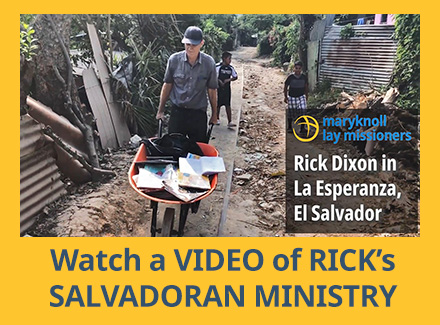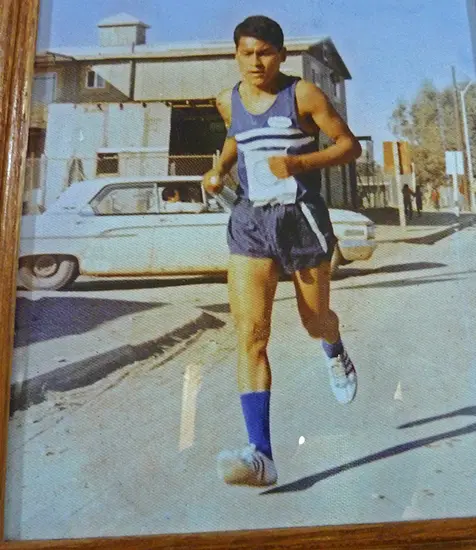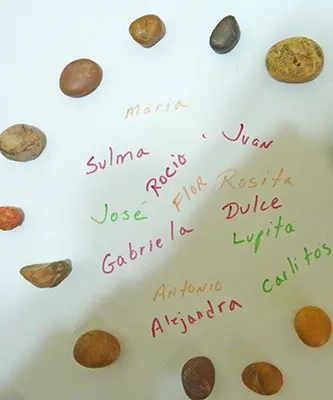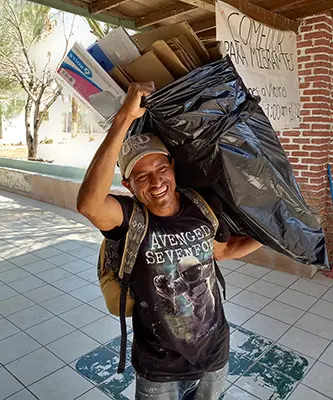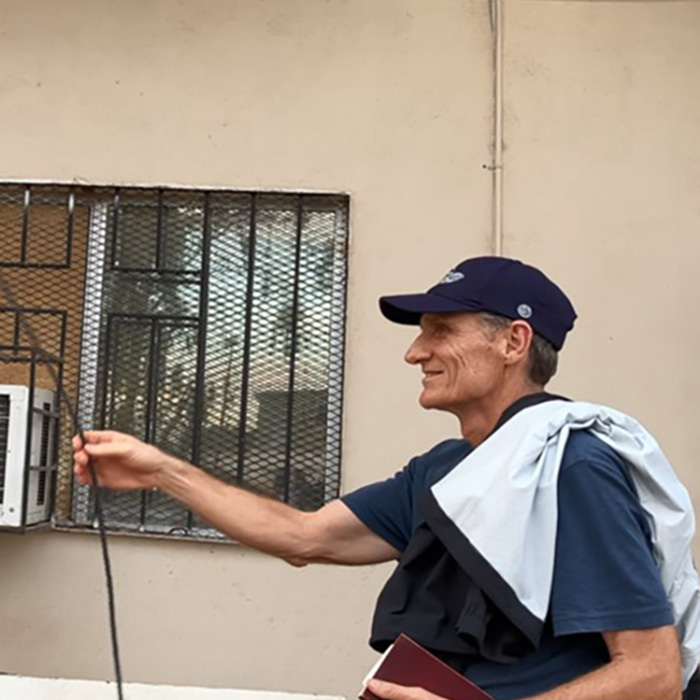
Rick Dixon
YEAR JOINED MKLM: 2011
Country: U.S.-Mexico Border
City: Mexicali, Mexico
MINISTRY: San José Obrero Migrant Center, Casa Betania, Oasis del Niño Center and Santa María de Guadalupe Parish
MINISTRY AREA: Justice and Peace / migrant and internally displaced ministry
GOAL OF MINISTRY: To serve the migrant community and internally displaced families.
Nonviolence Focus:
Prevention. The children and migrants with whom I work have often experienced a deep sense of alienation and fear. To welcome them and give them alternatives to dire situations through listening and concrete help — like a good meal, a warm blanket, or helping them find legal assistance — enhances the possibility for peaceful solutions.
My ministry also addresses nonviolence through inviting volunteers to immersion service and advocacy experiences. In Mexicali, we are educating U.S. citizens about situations that perpetuate violence against migrants. This in turn, promotes advocacy for addressing U.S. policies that negatively impact refugees, asylum seekers and migrants.
Ministry Context:
In Mexicali the arrival of migrants and internally displaced people (IDP) is continuous. The IDPs have often experienced traumatic violence. The Mexican states of Chihuahua, Sonora, Sinaloa, Guerrero, Michoacan, to name just a few, are infamous for violence and unemployment. People need shelter, food, clothing, legal assistance and help getting these services.
The city of Mexicali is the most populous city in the Mexicali diocese, with 1,200,000 inhabitants. Just over the border from Mexicali is the town of Calexico, California, with a population of 40,000. In reality, these two cities, Mexicali and Calexico form one metropolis, with a giant 30-foot fence slicing down the middle.
The economic welfare of the people of the diocese is based on three major sectors. One of the biggest is foreign factories, called maquiladoras. Agriculture and tourism are also major employment sectors. Agriculture is notoriously low wage, and seasonal earnings depend on the amount one can harvest. Low wages, long working hours, and unattended children have taken a toll on the family. The diocesan plan states the composition of the family has transformed rapidly. The increase of single-parent households is alarming. Also, the rise of alcoholism, drug addiction and gambling has affected families and presents an acute challenge for a pastoral vision focusing on violence prevention in the family.
Current Ministry:
To help respond to the migrant crisis, the Diocese of Mexicali has two migrant/refugee centers. The first, the San José Obrero Center, is a day facility which opens at 9 a.m. People come to shower, wash clothes, and then a meal is served at 11 a.m. The center operates Monday through Friday and receives between 100 and 120 people per day. Before COVID 19 there was also a small clinic, but it has since closed due to lack of funds.
The second center, Casa Betania, is an overnight shelter with lodging for 40 people, located on the south side of the city. Unfortunately, this center closed two years ago due to lack of funds and mismanagement. Father Alonso Palacios, who is in charge of the diocese’s social pastoral ministry, is currently in the process of reopening Casa Betania. He has mobilized dozens of parishes to prepare, transport and serve a meal at this center Monday through Friday from 4 to 6 p.m. (this center feeds 80 to 100 migrants and IDPs each day).
People fleeing violence and poverty from other parts of the country, also require a more focused pastoral outreach. Father Juan Carlos Pineda, the parish priest of Santa María de Guadalupe Parish, has also invited me to partner with him in this area. Many families in his parish are internally displaced persons, and due to the trauma they have experienced, there is a need to bring help and formation through alternative to violence programs as well as programs to build strong families.
I am working with all three ministries. This year I am organizing immersion-work groups for 2023 to help paint and recondition the Betania shelter so it can again be used to give overnight hospitality to migrants. I also help serve meals at the center two afternoons a week and work preparing meals and serving at the San José Obrero Center four mornings a week.
I also work with children, many from IDP families who are unable to provide adequate care for their kids. The children live Monday through Friday at the Oasis del Niño Center run by the Sacred Heart Sisters of Mexico (currently 17 children live there). The kids go to a public school, get three good meals a day, and live in a safe and healing environment (on weekends and holidays most children visit their families). I help mentor kids, assisting them with homework and organizing recreational activities.
In the evenings and on Saturday mornings, I work at Santa María de Guadalupe Parish, where I am forming a library. A group of 60 kids preparing for the sacraments of first communion and confirmation visit the library to check out books as enrichment to their catechism classes. This library will also serve the children at Oasis del Niño, which is only a short distance from the parish.
One of my first friends at San Jose Obrero Migrant Center was 7-year-old Ramón. He and his father are from Honduras. They came to the center for a meal, a shower, to wash clothes and rest. Ramón and his father have tried crossing into the United States four times. Each time they were caught by the border patrol and returned to Mexico under Title 42. Ramon’s father fears persecution in Honduras and cannot return there; so he keeps trying to enter the United States.
Ramón and his father are now resting under a mesquite tree at the shelter. The Father must dread what Bishop Mark Seitz of El Paso describes as merciless: “Title 42 and policies like it are merciless and literally killing people by driving them to cross the desert and to drown in rivers. Children are dying. Death can’t be an acceptable part of the overhead of our immigration policy.” My ministry engages with people such as Ramón and his father everyday. They need contacts for legal assistance, someone to talk with, possibilities for work and shelter in Mexico, and a reference point that is safe.
Personal Data:
I am originally from Orange, California, but also lived in New York City, where I worked for the Queens Library in their adult learning center. I have a bachelor of arts degree in English literature from Azusa Pacific University, California, and a California Teaching Credential from California State University, Fullerton.
I served with Maryknoll Lay Missioners in El Salvador from 2012 to 2021, working with small Christian base communities and developing a library and literacy programs in the community of La Esperanza in the town of Cojutepeque.

